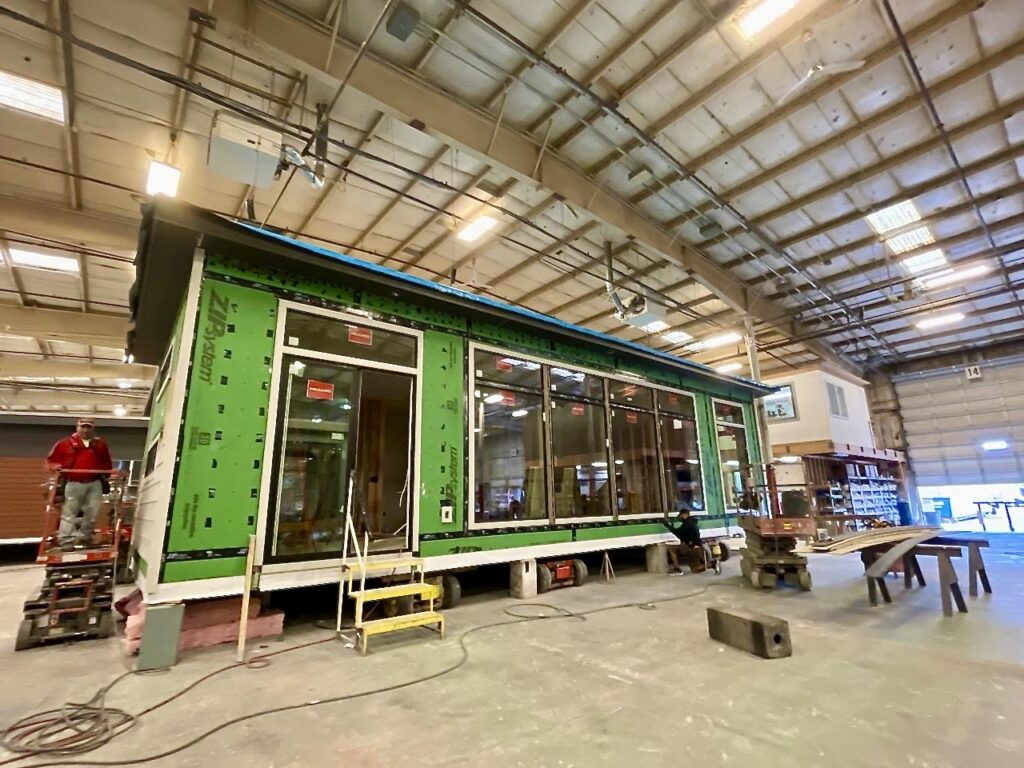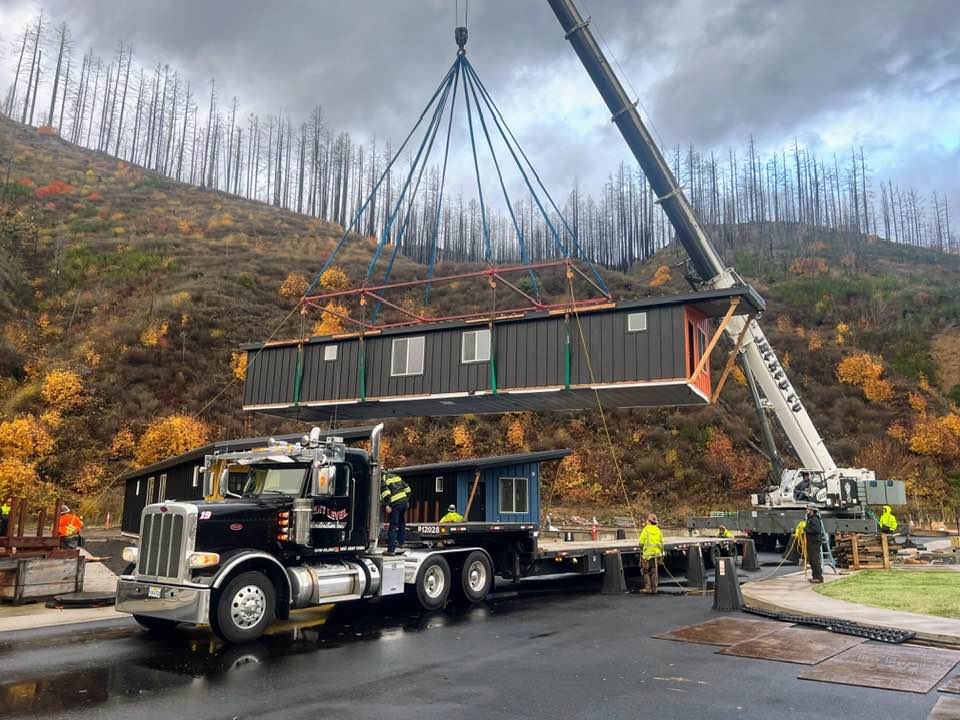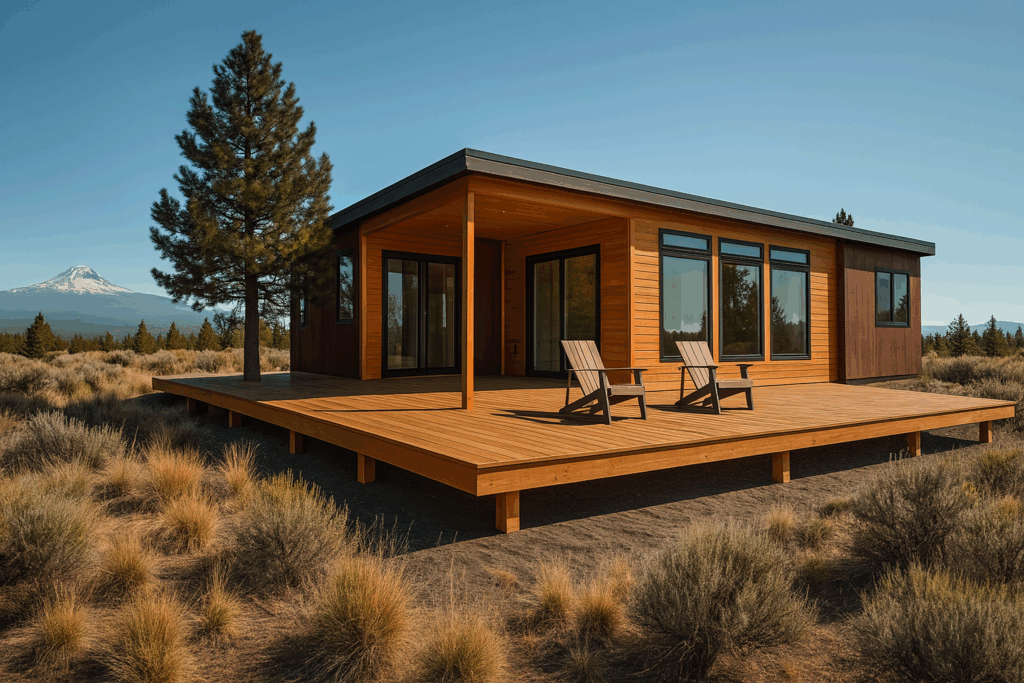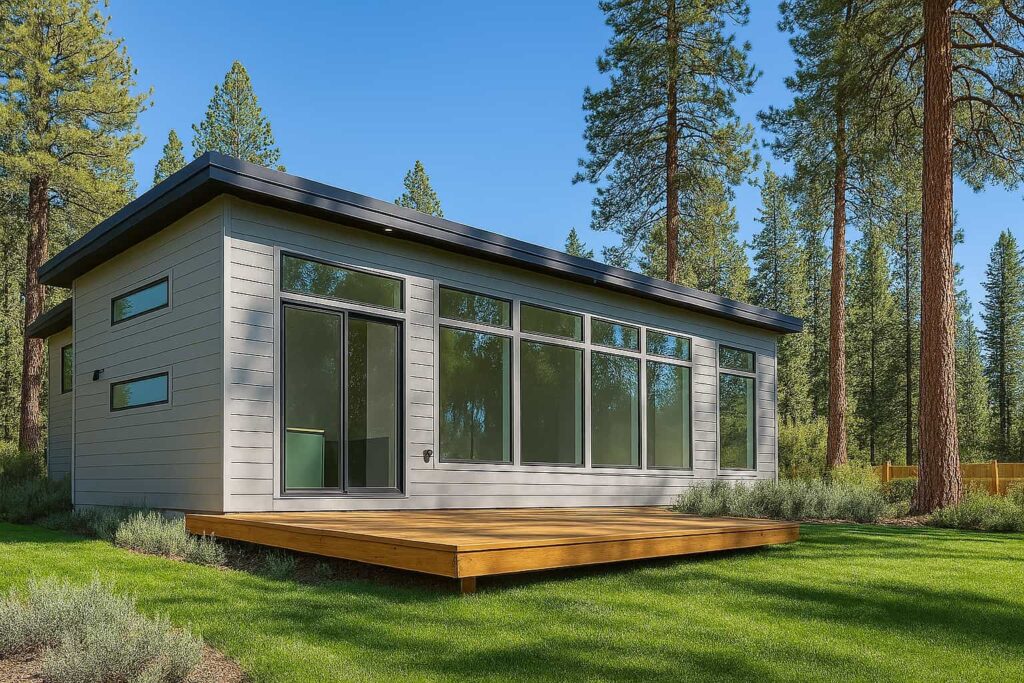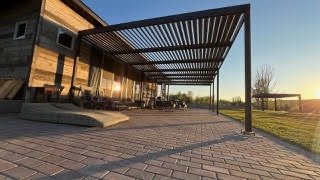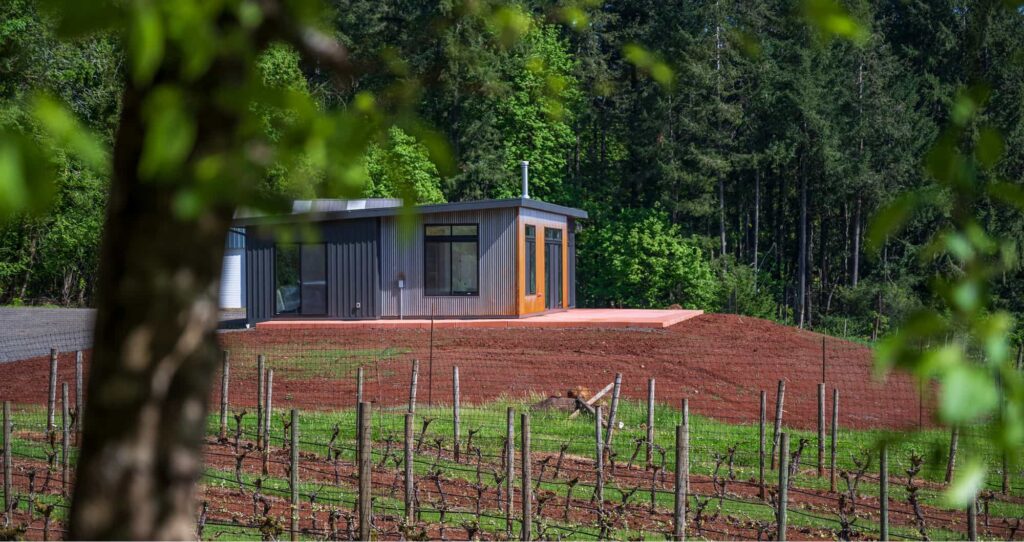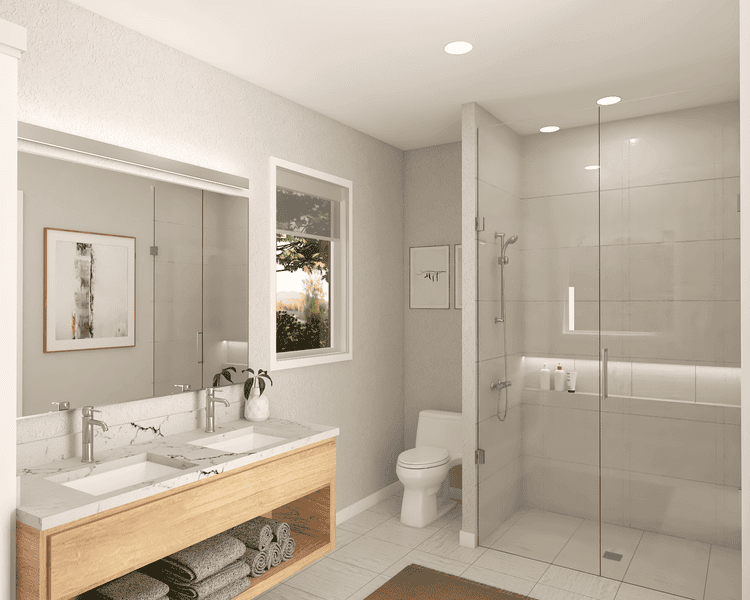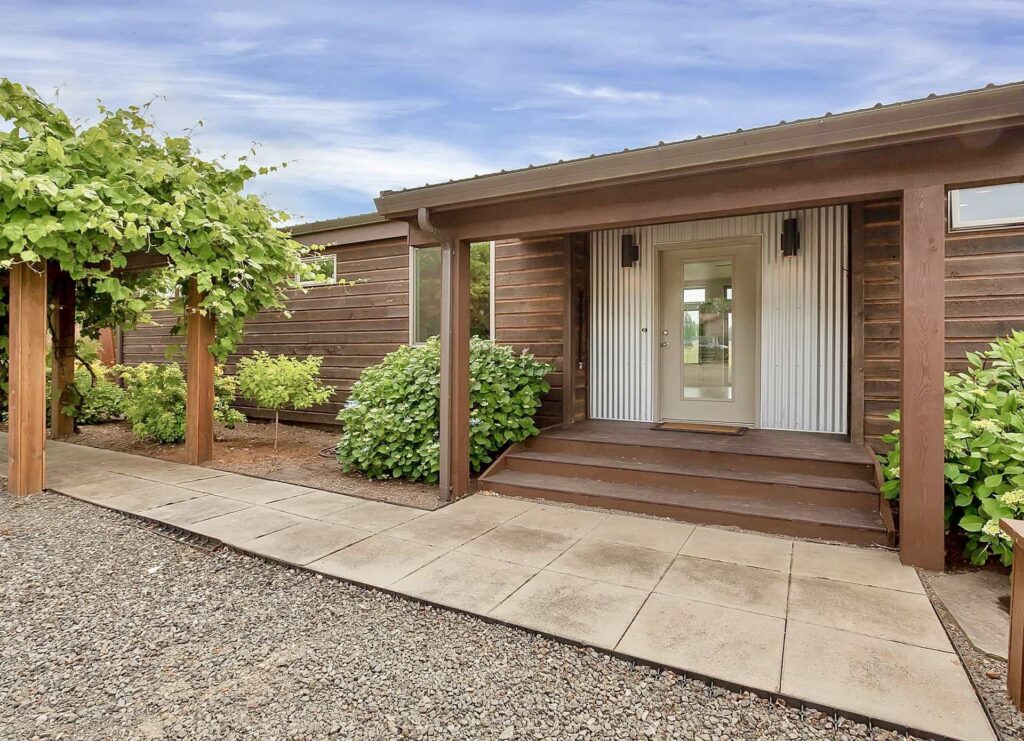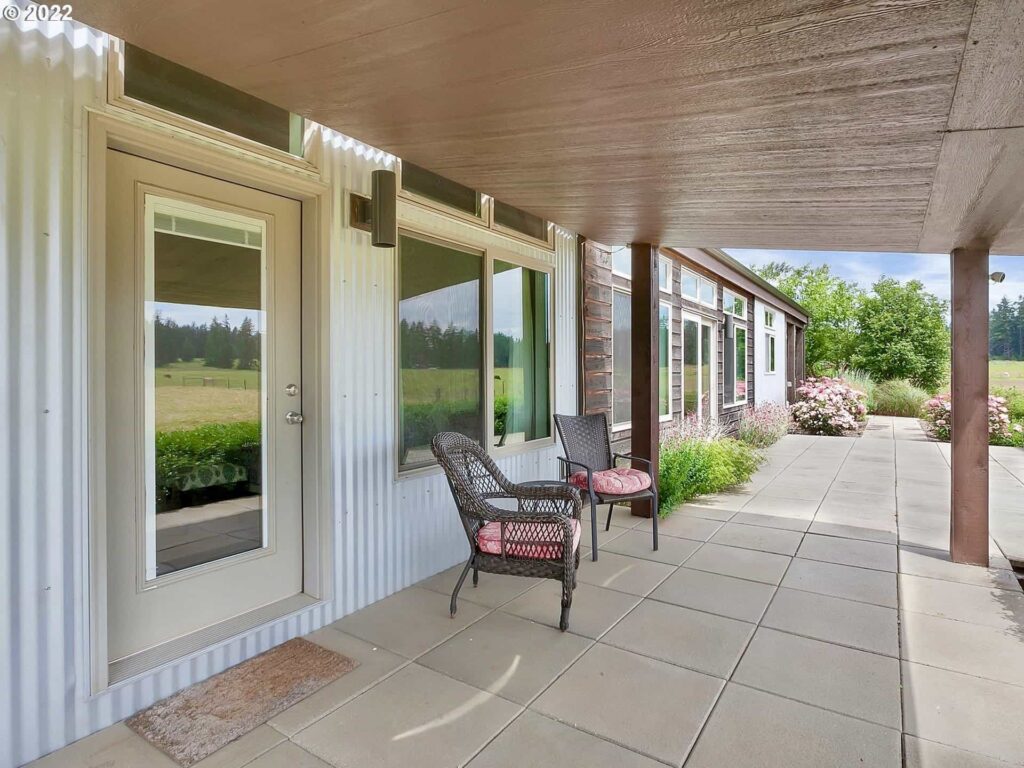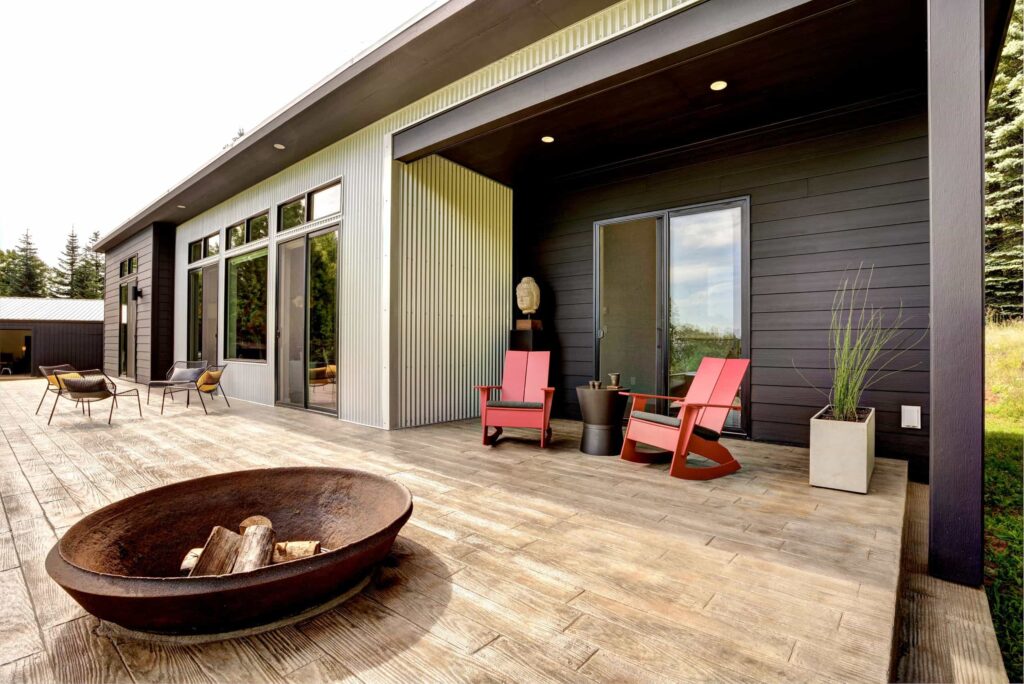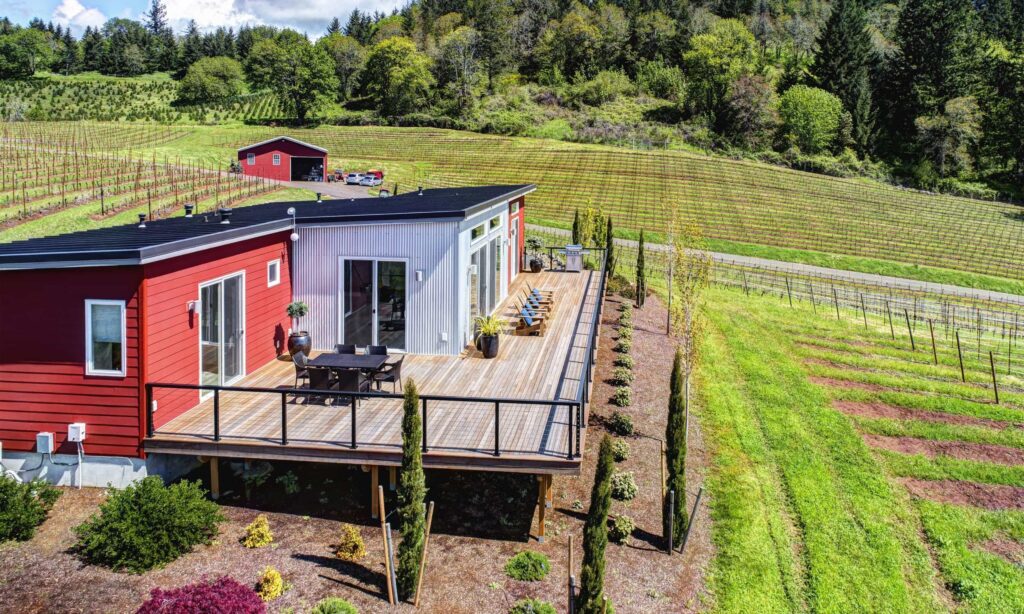Modular Homes in the Pacific Northwest: Urban Living Meets Smart Design in Portland
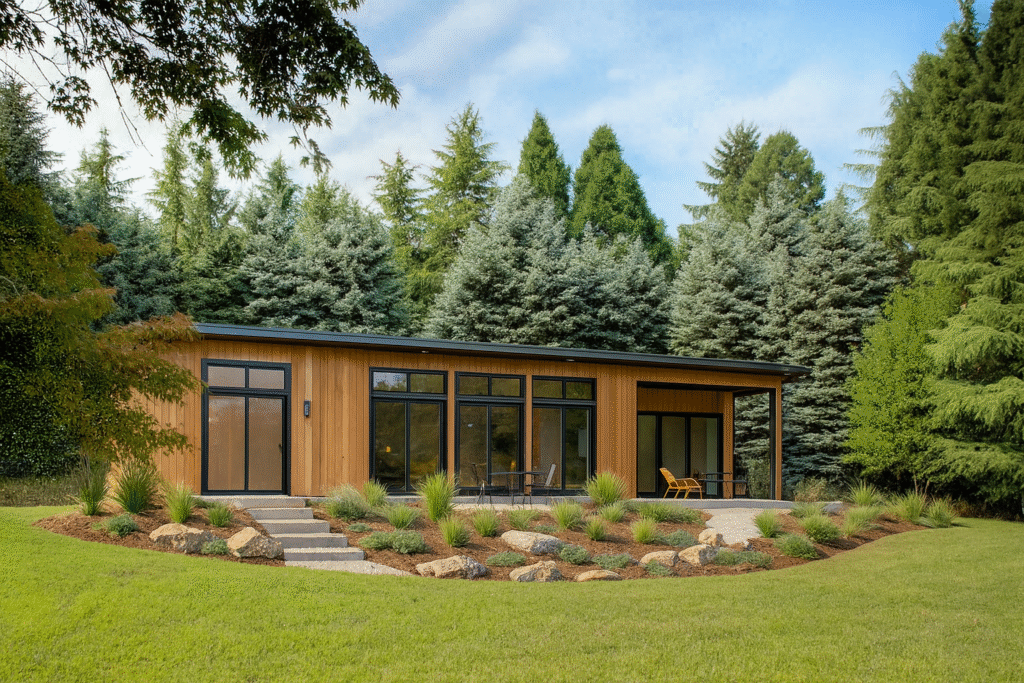
This article explores why modular homes are such a natural fit for Portland’s urban lifestyle (and the Pacific Northwest’s as a whole), where sustainability, creativity and modern design converge. It highlights the benefits of modular construction for homeowners navigating a competitive housing market while staying true to the city’s values of eco-conscious living and individuality.
What you’ll learn:
- Why modular homes align with the culture of sustainability in the PNW
- How smart design maximizes smaller urban lots
- The advantage of faster build times in a busy housing market
- Eco-conscious features that support healthier, greener living
- Financial benefits of modular construction in the PNW
- How customization ensures modular homes fit seamlessly into diverse neighborhoods
Portland, and the Pacific Northwest generally, is known for its creativity, sustainability and innovative approach to urban living. It’s a city where modern design meets environmental responsibility, and where homeowners increasingly seek alternatives to traditional construction. Modular homes, a type of prefab housing, fit seamlessly into Portland’s culture and lifestyle. They offer an efficient, eco-conscious and design-forward way to live in the city while maximizing space and comfort.
At ideabox, we design and build modular homes that are crafted to local IRC codes, set on permanent foundations, and designed with modern living in mind. For Portland residents, this approach makes perfect sense. Here’s why modular homes are such a strong fit for urban life in the Rose City.
A Culture of Sustainability in the Pacific Northwest
Few cities embrace sustainability quite like Portland. From urban gardens to bicycle commuting and renewable energy initiatives, sustainability is woven into the city’s identity. Modular homes align with these values by reducing waste, conserving resources and emphasizing energy efficiency.
Because construction happens in a climate-controlled environment, there is little to no material waste. Lumber, insulation and other materials are used efficiently, while anything left over can often be recycled. On site, there are fewer disturbances, less noise and reduced environmental impact.
Portland homeowners who prioritize sustainability find that modular construction reflects their values while providing the comforts of a thoughtfully designed home.
Smart Design for Urban Living
Space in Portland’s urban neighborhoods can be limited, making smart design essential. Modular homes are engineered to maximize every square foot. Open layouts, abundant natural light and flexible floor plans make homes built on smaller lots feel more spacious and comfortable.
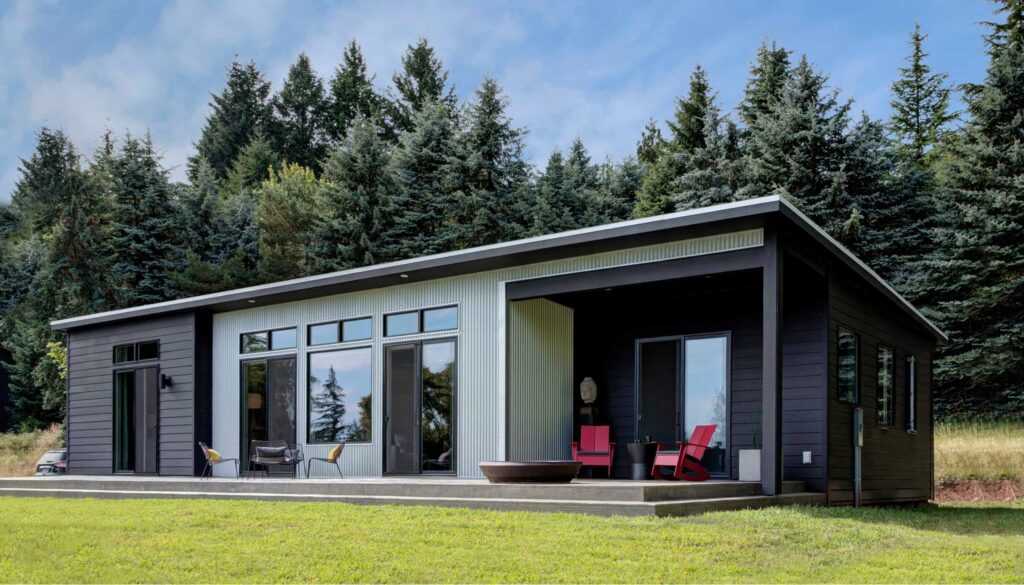
For example, many ideabox models emphasize open-concept living with efficient storage solutions. These homes prove that you don’t need a large lot to enjoy comfort and style. With customization options, homeowners can adapt layouts to suit their specific needs, whether that means creating a home office, incorporating built-in storage, or prioritizing outdoor living space.
This kind of smart design makes modular homes particularly well-suited for Portland’s urban neighborhoods, where efficiency and creativity often go hand in hand.
Faster Build Times in a Busy City
In a city like Portland, where demand for housing remains high, long construction timelines can be discouraging. Traditional site-built homes often take over a year to complete, with weather delays and supply chain issues adding even more time.
Modular homes are different. Because construction takes place in a factory while site work is completed simultaneously, the overall timeline is significantly shorter. On average, modular homes can be completed in about eight months.
For Portland homeowners, this faster timeline means getting into a new home sooner and avoiding months of disruption. The efficiency of modular building is a major advantage in a fast-paced housing market.
Eco-Conscious Features
Portland residents are deeply committed to eco-conscious living, and modular homes rise to the challenge with sustainable materials and energy-efficient features.
Many of the materials used in modular construction are selected for their durability, recycled content or fire-resistant qualities. Fresh air returns promote healthy indoor air circulation, while high-performance windows keep heating and cooling where it belongs, reducing energy consumption and lowering utility bills.
These features not only align with Portland’s environmental values but also create healthier, more comfortable homes for residents. For homeowners looking to shrink their carbon footprint without sacrificing modern style, modular homes offer the perfect balance.
Good for the Budget
Living in Portland means navigating a competitive housing market, where affordability can be a concern. Modular homes provide a financially smart option without compromising on design or quality.
The streamlined construction process eliminates many of the unexpected costs associated with traditional building. Fewer delays, reduced waste and efficient use of materials help keep budgets on track. Over time, energy-efficient features further reduce expenses by cutting utility bills.
For buyers who want both modern design and long-term value, modular homes offer an accessible path to homeownership in Portland.
Blending Into Diverse Pacific Northwest Neighborhoods
One of the lingering misconceptions about modular homes is that they all look the same or lack character. In reality, modular design is flexible and customizable, allowing homes to blend beautifully into Portland’s diverse neighborhoods.
Whether you’re drawn to a sleek, modern aesthetic or something that feels more natural and organic, ideabox homes are designed to reflect your vision. From siding materials to window styles and interior finishes, customization ensures that your home doesn’t just fit your lifestyle – it also complements the surrounding community.
Portland’s neighborhoods thrive on individuality and creativity, and modular homes are a natural fit for that ethos.
A Home That Matches the Pacific Northwest Lifestyle
What makes modular homes truly stand out in Portland is how well they support the city’s way of life. Residents here value experiences over excess, thoughtful design over unnecessary square footage, and sustainability over waste. Modular construction embodies those values in a tangible, livable form.

Imagine riding your bike home through tree-lined streets, arriving at a house that feels modern, bright and efficient. Your windows capture natural light while your high-performance insulation keeps energy bills low. The spaces inside are designed to align with your life – whether you’re working from home, hosting friends, or simply enjoying a quiet evening.
This is the kind of home Portlanders have been asking for: one that is simple, smart and deeply connected to the environment and community around it.
Why Modular Makes Sense in the Pacific Northwest
When you combine Portland’s progressive spirit with the practical benefits of modular construction, it’s clear why these homes are gaining traction. They’re faster to build, smarter in design, lighter on the planet and easier on the budget – all without sacrificing the individuality that makes Portland living so special.
ideabox homes take this even further by blending modern architecture with eco-conscious materials and customizable layouts. They don’t just fit into Portland – they feel like they belong here.
Conclusion: Building the Pacific Northwest Dream in Portland
Portland has always been a city that does things differently, and housing is no exception. Modular homes reflect the city’s unique blend of creativity, sustainability and forward-thinking design. They offer an alternative to traditional construction that feels perfectly in tune with the values Portlanders hold dear.
For those ready to make a move, a modular home isn’t just a house – it’s a statement. It’s a commitment to smarter design, greener living and a future where homeownership feels both accessible and inspiring.
With ideabox, that Portland dream is within reach.
Frequently Asked Questions About Modular Homes in Portland & the Pacific Northwest
They’re built in a climate-controlled environment that reduces waste (lumber, insulation and other materials are used efficiently and leftover material can often be recycled). On-site activity is lighter—fewer disturbances, less noise, and reduced environmental impact—and the homes emphasize energy efficiency for everyday living.
Modular homes are engineered to maximize every square foot with open layouts, abundant natural light, and flexible floor plans. Custom options let Portland homeowners add built-in storage, create a home office, or prioritize outdoor living space, so compact lots still feel spacious and comfortable.
Because factory construction and site work happen at the same time, the overall timeline is significantly shorter than traditional builds—about eight months on average—helping homeowners move in sooner and avoid extended disruption.
Materials are selected for durability, recycled content, or fire-resistant qualities. Fresh air returns promote healthy indoor circulation, and high-performance windows help keep heating and cooling where it belongs—lowering energy use and utility bills while boosting comfort.
Yes. Modular design is flexible and customizable—from siding and window styles to interior finishes—so homes can blend with Portland’s diverse neighborhoods and reflect each owner’s style, whether sleek modern or more natural and organic.
ideabox modular homes are crafted to local IRC codes and set on permanent foundations, combining modern design with the code compliance and permanence Portland homeowners expect.
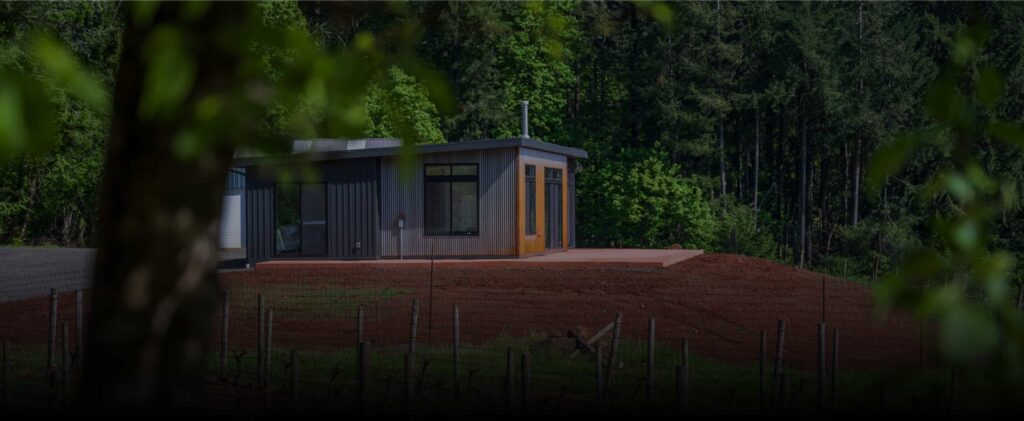
Let’s Build Something Great Together
Whether you’re ready to start planning or just want to explore options, we’re here to help. Let’s talk about your future home today.
